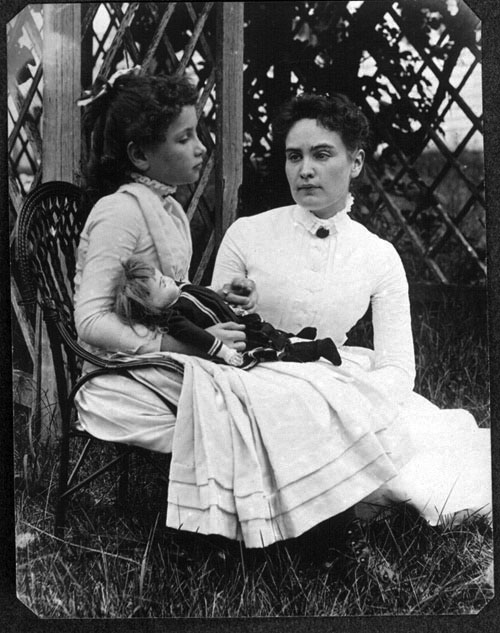Helen Keller

Credit: New England Historic Genealogical Society via Wikimedia Commons
Licence: Public Domain
| Giver: | Individual |
|---|---|
| Receiver: | Individual or unstructured/informal group, Other |
| Gift: | Voice/Advocacy |
| Approach: | Philanthropy |
| Issues: | 10. Reduced Inequalities, 16. Peace, Justice and Strong Institutions, 3. Good Health and Well-Being, 4. Quality Education, 5. Gender Equality, 8. Decent Work and Economic Growth |
Helen Keller (1880-1968) was a pioneering disability rights advocate, activist, humanitarian and author. Having lost her sight and hearing at an early age, Keller overcame adversity to become the nation’s foremost spokesperson for visually impaired people, destigmatizing the condition while fighting for the inclusion of groups living with disabilities in mainstream society. In addition to her pursuit of social justice for people with disabilities, Keller was a leader in the labor rights movement, a promoter of women’s suffrage and an early supporter of the National Association for the Advancement of Colored People (NAACP).
Discovered a Passion for Social Justice
Keller was born on June 27, 1880, in Tuscumbia, Alabama, the daughter of a Confederate Army veteran. At the age of 19 months she contracted a severe illness, which historians have speculated may have been scarlet fever or meningitis; although she eventually recovered, the disease ultimately left her deaf and blind. To help her manage her disability, Keller’s parents hired Annie Sullivan (1866-1936), a young teacher at the Perkins School for the Blind in Boston, as her private tutor.
Keller proved a challenging student, prone to temper tantrums and acts of physical violence. Through her perseverance, Sullivan gradually gained Keller’s trust, and soon began trying to teach her words by tracing the letters onto her hand. A breakthrough came when Sullivan poured water from an outdoor pump over Keller’s hand, while simultaneously writing the word over and over onto her palm. Keller described the moment of revelation in her 1903 autobiography, The Story of My Life: “That living word awakened my soul, gave it light, hope, joy, set it free!”
Under Sullivan’s guidance, Keller learned to read braille during winter sessions at the Perkins School, and later attended schools for the deaf in Boston and New York City. In 1900, she became the first deaf and blind person to attend Radcliffe College. As an undergraduate she met John Macy, an English professor at Harvard, who became the editor of her early writings. Macy also introduced Keller to the writings of Karl Marx and other socialist theorists, whose ideas helped shape her political beliefs.
After graduating cum laude from Radcliffe, Keller lived with Macy and Sullivan (who married in 1905) while continuing to write and publish. In 1909 Keller joined the Socialist Party, and became an outspoken proponent of the labor and suffragist movements. During these years Keller contributed articles to The Crisis, a journal published by the NAACP. In 1920, she helped co-found the American Civil Liberties Union (ACLU), a nonprofit dedicated to safeguarding human rights.
Devoted Her Career to Promoting Disability Rights
In 1924, Keller became the spokesperson of the American Foundation for the Blind (AFB), the nation’s first advocacy group for the visually impaired. In her role with the AFB, Keller successfully lobbied Congress to increase funding for braille libraries, while also becoming the organization’s most effective fundraiser.
Following Sullivan’s death in 1936, Keller traveled throughout the world, delivering lectures and advocating for disability rights. In 1964, Keller received the Presidential Medal of Freedom. She died in Easton, Connecticut, on June 1, 1968.
Through her life and accomplishments, Keller amply demonstrated that people with disabilities had the capacity to change the world for the better, and breaking down the stereotype that they were only recipients, rather than providers, of generosity. At the same time, her commitment to the causes of economic, gender and racial equality helped shape the social justice movements of the 20th century – leaving a legacy that continues to inspire marginalized groups to this day.
Contributor: Stephen Meyer
| Source type | Full citation | Link (DOI or URL) |
|---|---|---|
| Publication |
Cohen, Sascha. “Helen Keller’s Forgotten Radicalism.” Time, June 26, 2015. |
https://time.com/3923213/helen-keller-radicalism/ |
| Publication |
Crow, Liz. “Helen Keller: Rethinking the Problematic Icon.” Disability & Society 15, no. 6 (2000): 845-59. |
https://doi.org/10.1080/713662010 |
| Publication |
Garland-Thomson, Rosemarie. “Feminist Disability Studies.” Signs 30, no. 2 (Winter 2005): 1557-87. |
https://www.jstor.org/stable/10.1086/423352 |
| Book |
Keller, Helen. Out of the Dark: Essays, Letters, and Addresses on Physical and Social Vision. Garden City, NY: Doubleday, Page & Company, 1913. |
https://archive.org/details/outdarkessaysle01kellgoog |
| Publication |
Kleege, Georgina. “Helen Keller and ‘The Empire of the Normal.’” American Quarterly 52, no. 2 (June 2000): 322-25. |
https://www.jstor.org/stable/30041843 |
| Book |
Nielsen, Kim E. The Radical Lives of Helen Keller. New York: New York University Press, 2004. |
9780814758137 |